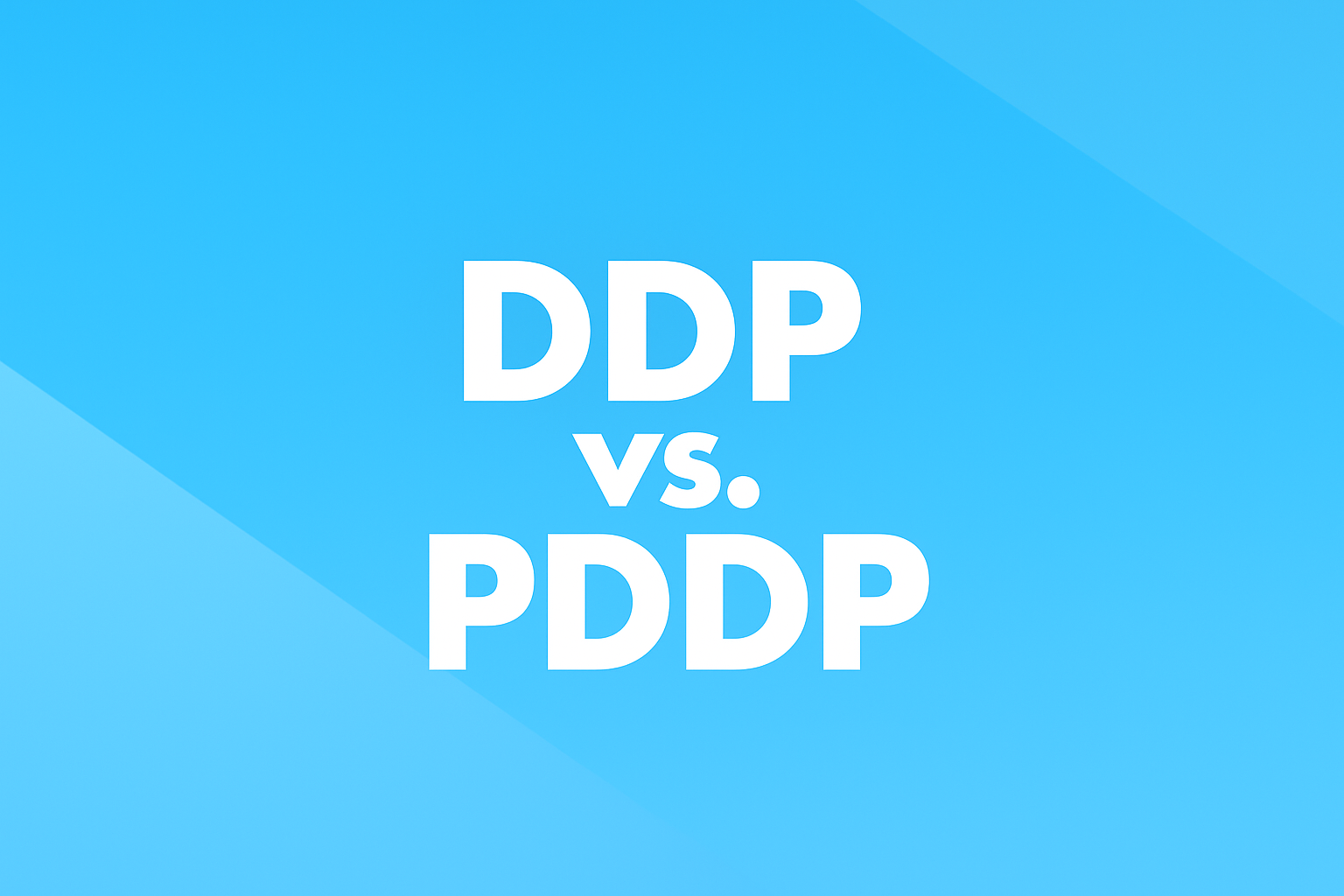- Ecommerce
- Shipping
- Shiptheory

Brexit and eCommerce
On January 31, 2020, the United Kingdom left the European Union and entered a transition period where existing arrangements are being kept in place until December 31, 2020. The UK is due to formally leave the EU’s Single Market and Customs Union from January 1, 2021. Negotiations are currently underway on a trade agreement.
What will Brexit bring for e-commerce companies? Will they have to comply with new regulations? Will UK online shoppers buy more from domestic online sellers as customs duty and import VAT will apply when ordering from EU countries?
The no-deal scenario
The UK is currently the largest online market in Europe and has had so far a leading role in the success of the European e-commerce industry. Undoubtedly, the UK’s e-commerce bloom has evolved in parallel with the unhindered trade EU membership guarantees. A no-deal Brexit, which seems the most likely scenario at the moment, will potentially disrupt in a significant way the current market trends on both sides of the English Channel. Will Brexit impede the UK’s booming e-commerce industry? On the other hand, how will the departure of the EU’s most prominent online market impact its economy?
In the case of a no-deal Brexit, the UK will become a third country and trade with the EU will be governed by terms set by the World Trade Organisation (WTO). Taxes and tariffs will apply to products that UK e-commerce businesses are shipping to the EU, which may harm the competitiveness of some goods. The number 1 e-commerce product category is clothing, and that is an area where high customs duties occur. It is also worth mentioning that customs duty and import taxes will also apply on return items, and that will have a significant impact on product categories with high return rates.
Implications for UK e-commerce businesses
Trading under WTO rules means potential border checks for goods, product conformity procedures like sanitary and phytosanitary standards checks, verification of compliance with EU norms, and other disruptions that will cause significant traffic increases at ports and slower road transport times. Shipping times will depend heavily on customs clearance, and that translates into more extended waiting periods for customers waiting for their orders to arrive.
After Brexit, UK consumers might turn more to UK businesses for their online shopping as their products might be cheaper than the imported ones. That way, there could be opportunities for domestic e-commerce businesses to get market-share growth, at least in the short term. On the other hand, if the end of the transition period leads to a drop of the Pound Sterling’s value like the one followed the announcement of Brexit in June 2016, that eventually will make UK products cheaper, hence more appealing to EU consumers. It is rather doubtful though that this will compensate for the tremendous loss in shoppers’ convenience due to extended delivery times.
UK e-commerce businesses will have to find ways to address the delivery and duty issues to convince their EU customers that their products will be still worth purchasing. The UK delivery management company Whistl conducted an international survey recently asking online consumers on their opinion of whether Brexit will affect their international purchasing behaviour after the transition period ends on December 31, 2020. The European respondents to the survey deem Brexit will mean slower delivery of products from the UK, particularly Germany 34%, France 27% and Ireland 24%. The UK respondents are equally divided with 22% believing there will be no impact or slower delivery times.
Marketplace Fees and Taxes
In regards to Brexit and UK marketplace fees, there is probable to be a change to VAT applied. All major online marketplace like eBay and Amazon will likely increase their fees changed from the current 15% VAT to 20% VAT.
The eCommerce Directive and data transfer after the transition period
The eCommerce Directive currently allows EEA (European Economic Area) online service providers to operate in any EEA country, while only following relevant rules in the country in which they are established. The Directive applies to “information society services” and covers the vast majority of online service providers, including online retailers. This framework will no longer apply to UK providers after the end of the transition period as the UK will have left the EEA. Every e-commerce business should consider whether its services are currently in scope of the Directive and if so, ensure that they are compliant with relevant requirements in each EEA country the company operates in.
Moreover, e-commerce companies based in the UK will need to establish a representative in an EU country. They will also have to change the way they manage data transfers, like customers’ data for shipping labels, if the data originates from EU located businesses. Further information regarding the above can be found on the Information Commissioner’s Office (ICO) website.
What are the limits for customs duty and import VAT?
Commercial consignments of £15 or less are excluded from customs duty and import VAT. This does not include alcohol, tobacco, perfume or toilet waters. These items are excluded from the relief of duty and VAT at import and alcohol and tobacco products will also be liable to Excise Duty. Import VAT is applicable to consignments from £15.01 up to £135, while import VAT and customs duty are applicable to consignments worth more than £135.
What do I need to do when I send a package abroad?
In the case of a no-deal scenario, every e-commerce company sending a package to any country outside the UK, must complete and affix a customs declaration form (CN22 or CN23) and a commercial invoice to the consignment.
There are two types of customs declaration forms, depending on the value of the items sent:
· For items with a value up to £270 customs declaration CN22 is used.
· For items with a value over £270 customs declaration CN23 is used.
Additionally, a C&E83A “Exported by post under HMRC Control” label should be attached to the parcel which directs post office staff to present it to the Border Force at the Office of Exchange for checks to be made prior to export.
Conclusion
For e-commerce businesses, the most significant challenge posed by Brexit during the transition period is preparing adequately for what comes next no matter how unclear that might be at the moment. They must take proactive steps to plan and prepare for a probable no-deal scenario.
First and foremost, e-commerce companies must register for a UK
Economic Operator Registration and Identification (EORI) number to be used on customs declarations by freight forwarders and couriers and accurate classification on exported goods will be needed.
Then you should perform a comprehensive SWOT analysis (strengths, weaknesses, opportunities, and threats analysis) with the assumption of a no-deal outcome that will help you prepare for future market transformations and assist with planning. E-commerce companies should be ready to update their shipping and tariff policies to conform to both UK and EU regulations as soon as the final Brexit details are known.
Furthermore, if EU consumers are your primary customer base, consider the possibility relocating your inventory in warehouses overseas. Several big UK companies have already started constructing fulfilment centres in EU countries.
Last but not least, stay informed. Paying close attention to the news coming from reliable sources will keep you up to date and help you better assess and prepare for Brexit’s economic impact.
No matter what the outcome of the Brexit negotiations will be in the following months, using a shipping platform like Shiptheory that allows access to the world’s best carriers, can offer you the best shipping solutions for your e-commerce business despite the uncertainty of Brexit’s economic impact.






